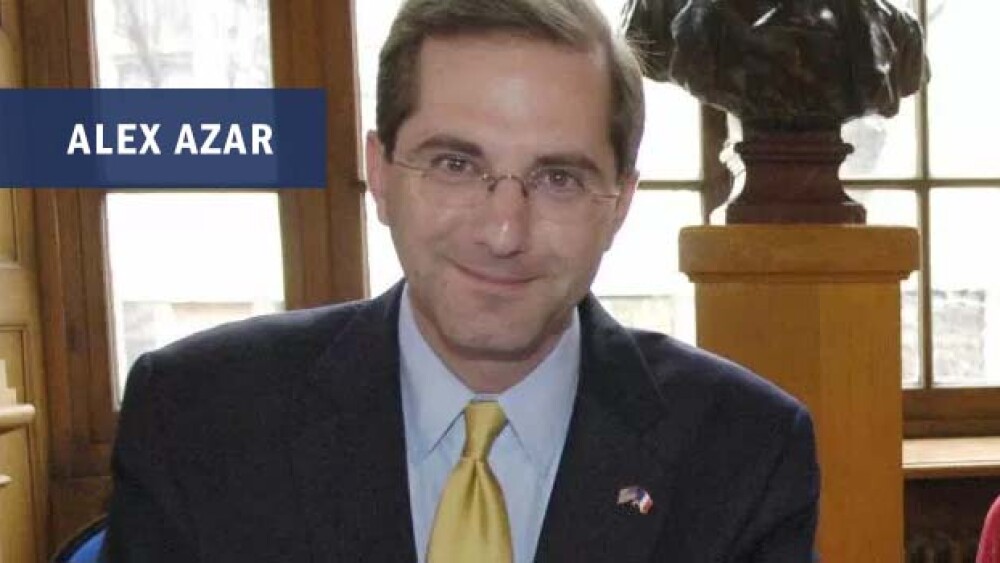The White House budget proposal released earlier this week that slashed spending on the National Institutes of Health and Medicare programs has put members of the administration, including Health and Human Services Secretary Alex Azar on the defensive.
The White House budget proposal released earlier this week that slashed spending on the National Institutes of Health (NIH) and Medicare programs has put members of the administration, including Department of Health and Human Services Secretary Alex Azar on the defensive.
The president’s proposed spending plan cuts $4.5 to $5.5 billion from the current budget of the NIH, about an 11 percent decrease from 2019. The administration’s proposed budget also cuts $395 million from the Centers for Medicare and Medicaid’s funding. In its report on the proposal, CNBC cited analysts who said the cuts proposed could result in $1.5 trillion in less funding for Medicaid over 10 years. That, of course, means fewer people who fall under an economic threshold and rely on Medicaid for medical coverage would benefit from the coverage.
During a committee meeting on Capitol Hill, Azar was grilled over the proposed cuts by members of Congress. During his opening remarks to the House Energy and Commerce committee, Azar told the lawmakers that HHS has the “largest discretionary budget of any non-defense department in 2018.” He told the committee members that staying within the spending caps set by Congress has “required difficult choices that I’m sure many will find quite hard to countenance,” CNBC reported.
The presidential plan makes significant cuts to multiple offices that are under the NIH umbrella. The NIH cuts include an $897 reduction from the National Cancer Institute (NCI). The National Heart, Lung, and Blood Institute will see a reduction of approximately $486 million.
Azar told the committee members that his department attempted to “prioritize certain funding at NIH” but noted that “there’s just not enough money to go around in HHS,” CNBC reported.
The National Institutes of Health has enjoyed bipartisan support over the years. Trump has made similar proposals in the past when it comes to the NIH. Trump has been critical of NIH spending, which he has called wasteful or suggested that much of it was unnecessary. Lawmakers disagreed and actually increased funding for NIH in the last budget.
While Azar did take heat for Trump’s proposals, he did earn bi-partisan praise for his efforts to lower drug prices for Medicare patients, CNBC said. One of the proposals in the White House plan is to cap out-of-pocket expenses for prescription drugs covered by Medicare. Although no hard numbers were provided in the proposal, the plan would have the government pick up additional costs for the drugs beyond the spending cap.
The presidential proposal would also eliminate confidential discounts in Medicare Part D drug plans. CNBC reported that issue was generally well-received, but there were concerns raised by members of the House about allowing Part D plans to exclude certain drugs from coverage in exchange for bigger discounts from drug manufacturers.
A few other parts of the proposal have earned some praise. The spending outline calls for an additional $291 million for HIV/ AIDS treatment. Of that, $140 million would be added to the budget of the U.S. Centers for Disease Control and Prevention (CDC) to help reduce new HIV infections. During his most recent State of the Union speech, Trump called for a 90 percent reduction in HIV infections over the next 10 years.
The U.S. Food and Drug Administration (FDA) would see a bump in its budget under the president’s plan. The FDA budget would increase by $362 million, taking it to about $3.3 billion. The increase in spending for the FDA includes $55 million for the opioid epidemic and $55 million to support the development of digital health technologies.
While Azar was taking the brunt of the Congressional inquiries into the president’s proposed funding of medical and scientific programs, it is up to Congress to actually write the budget. The White House proposal is merely a guideline. With Democrats in control of the House, many of the president’s proposed cuts are not likely to be considered or will be amended to make the proposals more palatable to Congress.





